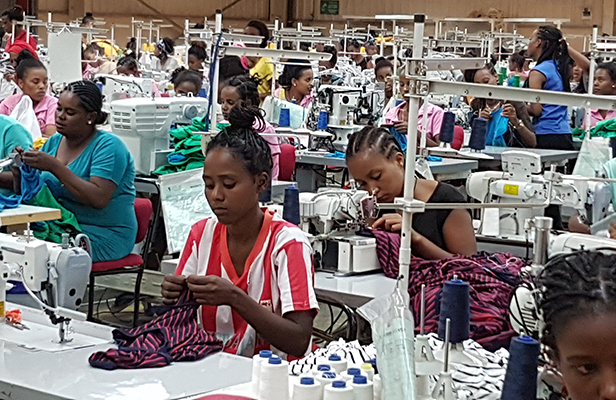May 08, 2019
Sourcing Watch: Unrest Grows Among Ethiopian Garment Workers
The East African nation, along with Cambodia, has faced recent criticism related to labor rights.
Unrest is growing among Ethiopian garment workers over low wages and related issues, and the Cambodian government is under pressure to do more to protect the rights of apparel-making laborers, according to recently released reports.
The news is relevant for promotional products companies that source apparel from Cambodia and Ethiopia, as it could potentially impact everything from supply chain efficiency to public perception of brands that import apparel from the respective nations. Workers in a textile factory in Ethiopia’s capital city of Addis Ababa.

Workers in a textile factory in Ethiopia’s capital city of Addis Ababa.
Brands have increasingly sought to source from Cambodia and Ethiopia as lower-cost alternatives to other more established sourcing destinations, such as China. The Ethiopian government in particular has been pushing hard to accelerate its economy – one of the fastest-growing in Africa – by encouraging the global apparel industry to set up shop within its industrializing borders.
Nonetheless, the New York University Stern Center for Business and Human Rights this week released a report that says Ethiopian garment workers earn $26 a month – the lowest average wage of any major garment-producing country. In China, apparel workers make $340 monthly, while in Kenya they earn $207. Garment laborers in Bangladesh take home $95 on average.
The minimum living wage in Ethiopia is about $110 monthly, according to an Associated Press report. With apparel workers making less than a quarter of that, laborers are pushing back, reports indicate.
"Rather than the compliant, cheap workforce promoted in Ethiopia, the foreign-based suppliers have encountered employees who are unhappy with their compensation and living conditions and increasingly willing to protest by stopping work or even quitting," said Paul Barrett, the Stern Center's deputy director, according to the Daily Monitor.
Meanwhile, Nike, Under Armour, Gap, Levi Strauss and other leading global apparel brands and retailers recently sent a letter to the Cambodian government urging officials to address criticism of its human rights record as it relates to garment workers in the country.
A letter the brands sent last November did not receive a response from Cambodian officials. The 20 brands and retailers, which reportedly imported $9.5 billion from Cambodia in 2018, are concerned that alleged labor and human rights abuses could lead to Cambodia losing trade preferences.
The fear is not unfounded: The European Union, for example, recently initiated a process that could lead to Cambodia’s beneficial tariff arrangement with the 28-nation trading bloc being temporarily suspended. Such a suspension could possibly impact apparel supply chains and more.
Positive steps Cambodia could take to address alleged human/labor rights issues include establishing an arbitration council, putting in place a law focused on trade unions, and implementing a required minimum wage, reports indicate.